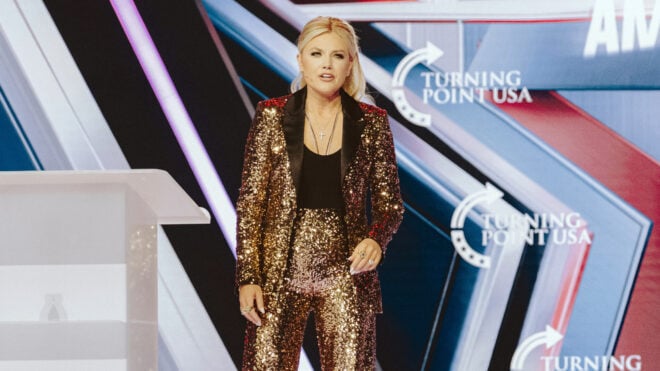
A few months ago, my daughter came home from school talking about what she had learned in her sex ed class. I was thrilled that she had absorbed so much, mainly because I know the importance of sex education.
I know that abstinence-only education leads to far higher rates of teen pregnancy. I know what an impact sharing the stats, the facts, and how to take care of your body can make. I'd been so happy to hear about what she would be learning that I even attended a school meeting to hear from the expert who'd be teaching it.
But a few minutes into the conversation, my 12-year-old started talking about birth control. She has seemingly decided that everyone her age should be on it. "So, when should I get on birth control?" she inquired.
Wait, what?
The views expressed in this personal essay are solely the author's, and while we celebrate individuals’ rights to express themselves, these views do not necessarily reflect the opinions and beliefs of this website or its affiliates.
Whoaaaa. Slow down a sec, I said in my head. "Birth control is a pretty huge decision that has a ton of side effects. Didn't they cover that?" I asked. Nope. They had not. Not even a little bit, she said.
My daughter took a big breath before launching into how important it is for young women to take control of their bodies, and how, even though she's not thinking about having sex soon, it's better to be prepared when the time comes. She may have even rattled off some statistics about teen pregnancy, but I was sort of in a trance at that point and just wondering how she got there. While part of me was glad for the forward-thinking teaching, I was also like, hmmm. Not talking about side effects seems like an oversight.
More from LittleThings: Single Motherhood Has Cost Me A Lot Of Friendships. Here's How I'm Combatting Loneliness
I totally didn't want to poo-poo my daughter's new finely crafted viewpoint. I certainly think it's important for young women to care about their bodies and take charge of their reproductive health. But I couldn't help but think that the sex ed course must've missed something, because starting birth control is a serious venture. Yes, it's incredibly common. Still, that doesn't mean we should gloss over how it can impact not just your body, but your brain.
Personally, I didn't start taking birth control with any regularity until college, and even then, I felt its impact in a big way. As a person who is, let's just say, hormonally sensitive, I have to be super careful about what I put in my body. I never really found something that didn't alter my mood in a significant way. Therefore, most of my stints on hormonal birth control were short-lived. I'm not alone in that — many women have intense mood swings from birth control.
Taking a daily pill doesn't seem like a big deal, and it seems like it was discussed as if it is not in my daughter's sex ed class, but it definitely is. Aside from the psychological impact of beginning a very grown-up regimen such as using birth control, there is also a lengthy list of side effects.
The short list of side effects includes things like fatigue and headaches — generally not a huge deal. But there can be serious bodily changes, too. The most serious can be insomnia, nausea, and heightened blood pressure. More and more, we're hearing about increasingly younger women who are seeing real-life impacts from taking birth control, too.
In talking to my daughter, I tried to clue her in.
Doing my best to make sure she felt heard, I merely added my input, knowing we would likely revisit this topic over and over again. But I told her that taking a daily pill, or starting another form of birth control, most of which are hormonal and all of which have side effects, is definitely a big deal. I told her that young women are so often not told how serious that choice is, and while preventing pregnancy is hugely important, so are other aspects of her health.
I threw in the fact that Hailey Bieber, a woman far too young to be having vascular issues, just had a stroke that doctors attributed, in part, to taking hormonal birth control. It's something that is so scary but barely discussed until we hear about it in the news. Case in point: my daughter's sex ed class, which didn't even mention side effects.
Lucky for me, my kid is only 12 years old. She hasn't quite kissed a boy yet, though I know that's likely looming. But as far as sex goes, I'm fairly certain we have time. For that I am grateful, simply because that means we have more time to come up with a plan. But the sad truth about birth control is that there are side effects, pretty much no matter which one you choose.
It sucks, and it almost feels like dealing with those side effects is just part of being a woman. But even though birth control is important, it doesn't mean that avoiding discussions about the health risks is the right approach.
Women deal with the consequences of what years of hormonal birth control has done to their bodies every day. The least we can do is start educating young women about the reality of what that can look like.




